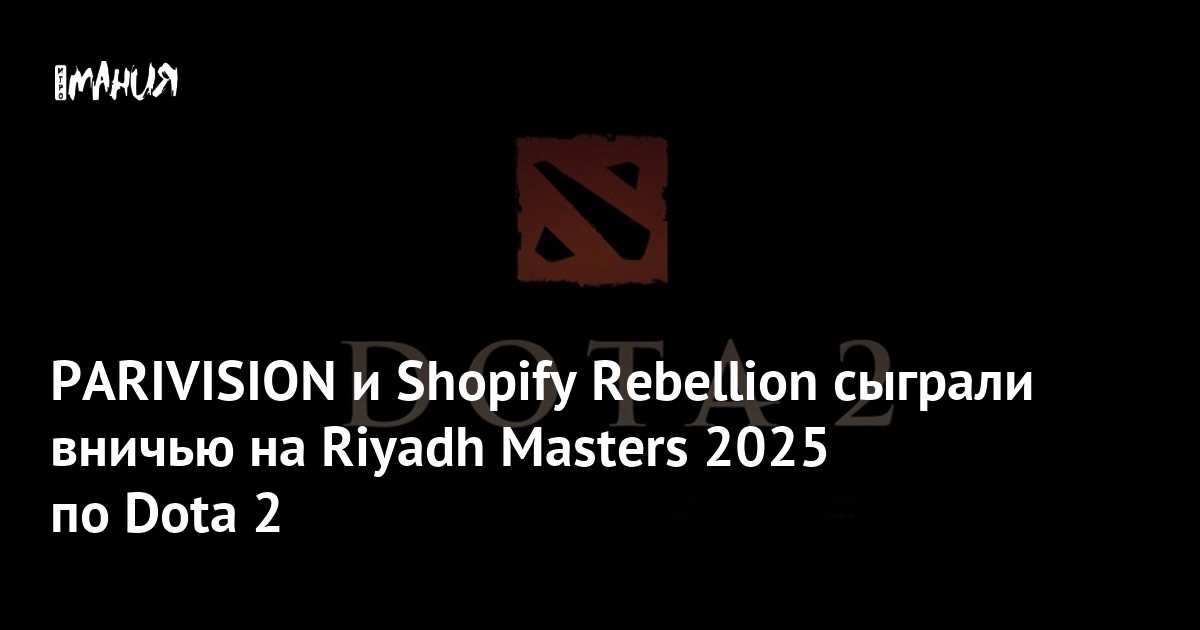The Riyadh Masters 2025 Dota 2 tournament, often dubbed the “esports world championship,” is rapidly approaching its climax. For those who perhaps “overslept” through the group stage – which, by the way, accounted for roughly 90% of the games played – a whirlwind of unexpected events unfolded. As we transition into the high-stakes playoff bracket, let`s recap some of the most interesting and, at times, peculiar happenings from the opening phase.
The Rare Beast: Single-Elimination Playoffs
One immediate point of note is the playoff format: single-elimination. This is a distinctly uncommon sight in major Dota 2 tournaments. While a variation appeared at BLAST recently, and a limited version was used at the first Riyadh Masters in 2022 (which featured just ten teams, one being the unforgettable Deboosters with `lil pleb`), a true, classic single-elimination bracket where all teams start on equal footing hasn`t been seen at an official tier-1 event since the Kiev Major in 2017. The most recent significant tournament using a similar system was ESL One Birmingham 2018, but even that had only 12 teams and a slightly staggered structure. This format ensures every match is a do-or-die situation, a pressure cooker unlike the safety net offered by traditional double-elimination brackets. It will be fascinating to see how this impacts the modern tier-1 scene.
Heroes You Forgot Existed, Now Winning Games
If Riyadh Masters 2025 excelled at one thing in its group stage, it was hero diversity. The drafting phase saw the return of characters many players might have needed a moment to recall, heroes like Visage, Spectre, Keeper of the Light, Chen, Beastmaster, Death Prophet, Phantom Assassin, and Elder Titan making appearances.
However, the true head-turners were the successful unconventional picks. Pure~`s carry Hoodwink and Niku`s midlane Undying stood out. These are the sorts of creative, perhaps even questionable, choices you`d typically only encounter in high-rank matchmaking from dedicated hero enthusiasts. Yet, on the professional stage, against top-tier opponents like Falcons and Xtreme respectively, these audacious picks actually secured victories. Sometimes, surprising your opponent with something truly outside the meta works wonders.
Stats That Raise Eyebrows (and KDA Below One?)
Statistics often paint a picture, and at Riyadh Masters 2025, some of those pictures were quite… abstract.
Despite Tundra Esports successfully navigating the group stage with a win rate exceeding 70%, their carry player, Crystallis, managed to secure a rather unique “anti-record.” Among all core players at the event, Crystallis finished the laning phase with the fewest creeps on average – just 47 by the ten-minute mark. To put that in perspective, this is ten fewer creeps than even Daxak, and significantly behind the majority of core players who averaged over 60 by the same time. It`s somewhat amusing that a player on a high-performing team holds this particular distinction.
Then there`s the Phantom Lancer dilemma. Picking the hero at Riyadh Masters 2025 felt akin to accepting a dare to lick a frozen swing set in winter: potentially risky, likely painful, and often resulting in getting stuck. Multiple high-profile players including Pure~, Ame, Satanic (who tried twice!), and Timado all attempted to make Phantom Lancer work, and all remained metaphorically “stuck” to the frozen metal – they lost. Only Nightfall managed to pull it off successfully. The result? Phantom Lancer ended the first two stages with a dismal 14% win rate, one of the worst in the tournament, and an average KDA comparable to that of a support Rubick. A hero definitely struggling in the current patch.
On the team front, Virtus.pro regrettably earned a different kind of record. Daxak`s squad was the only team to exit the tournament without winning a single map, finishing with an 0-8 record. Their games often highlighted their struggles; against Team Yandex, they managed a total of just 12 kills across two maps. While they showed moments of promise, like one game against Aurora where a last-pick Huskar saw them secure 19 kills, take Roshan, and even hold a gold lead for a time, these flashes were short-lived.
Adding to VP`s statistical woes, their support player Antares achieved a notable, if unwanted, benchmark: an average KDA below one. In Dota 2, where earning assists is relatively common just by participating in fights, achieving a sub-1.0 KDA over a tournament is… an accomplishment. It`s a stat more typically associated with criticism in games like Counter-Strike, making it particularly rare and striking in Dota.
Technical Hiccups and Neighborly Noise
While recent major Dota 2 events have been relatively smooth operationally, Riyadh Masters 2025 seemed intent on reminding viewers of tournaments past. Thankfully, lengthy game pauses were mostly avoided, but regular audio and video glitches plagued both the English and Russian language broadcasts. Viewers on the English stream occasionally saw visual artifacts, while Russian commentators experienced moments where their video feed, and later their microphones, cut out, forcing them to cast “blind” and then in silence.
Adding an unexpected layer of “atmosphere,” microphones also picked up ambient noise from nearby halls. Amusingly, the loudest and most enthusiastic sounds bleeding into the Dota 2 broadcast came not from the high-stakes “esports world championship” itself, but from teams competing in the Valorant tournament next door. Their victorious roars and battle cries frequently drowned out the Dota 2 action. The only truly distinct player communication heard from the Dota side came from the Liquid vs. PARIVISION series, a concise yet impactful “Bots!” – though this was only audible on the English stream, located physically on-site.
***
The group stage of Riyadh Masters 2025 certainly wasn`t short on talking points, from unusual drafts and surprising stats to format debates and technical quirks. With the single-elimination playoffs now underway, we can only hope for more thrilling matches, memorable plays, and perhaps a few more ironic moments and meme-worthy events to come. Stay tuned!

